About the Department
Sociology is an academic discipline that scientifically analyzes the continuities and transformations of social phenomena and social structures such as culture, language and class. In this way, sociology provides guiding analysis that helps find solutions to social problems. Sociological analysis reveals the historical and social aspects of the problems that we face in our daily lives, and thus shows that the problems of the world we live in are not inevitable. Sociology examines the possibility of another world and solutions to these social problems in contact with other disciplines. Our department consists of academics who research these subjects of contemporary relevance, including migration, the climate crisis, and changing working conditions, in a variety of contexts.
The four-year bachelor’s degree program in Sociology at the Turkish-German University, which accepted its first students in the 2021-2022 Fall Semester, aims to train individuals who are conscious of scientific and ethical principles and are able to interpret local and global developments. Our students’ academic and professional qualifications will enable them to analyze the transformation of social structures such as family and the legal system within relations of cause and effect. The unique characteristic of the Department of Sociology at the Turkish-German University is that it investigates these central points comparatively and relationally, with reference to their reflections in Turkey and Germany.
University of Bielefeld, one of the leading German universities in the field of Sociology, is our partner university and is therefore jointly responsible for the development and execution of our undergraduate program. Sociological approaches developed to understand social phenomena such as migration and transnationalism, which characterize the relationship between Germany and Turkey, are conveyed to our undergraduate students with a curriculum prepared by academics working in these fields. The program was designed in such a way that the academic traditions of Germany and Turkey are brought together and at least 30% of the courses are held in German. Consequently, our students will have the opportunity to examine the texts written by German sociologists, who played a central role in the establishment and development of the discipline, in their original language. English language courses have also been added to the curriculum so that the students can effectively use English, a leading academic and professional language in the discipline. In this way, our students graduate competent in three languages.
The curriculum of our Sociology Undergraduate Program consists of courses that bring together different theoretical and methodological approaches in the social sciences and provide an interdisciplinary, comparative and multidimensional analysis of subjects varying from social movements to ecology and labor. In addition to the basic theoretical curriculum; courses focusing on current global and ecological phenomena such as epidemics, humans’ relationships with other species, changing working conditions and the climate crisis, equip students with a command of current social developments and the academic literature. Thanks to the intensive methodology and research methods courses, our students will also have the chance to collect and analyze primary data on the local reflections of these global phenomena. Furthermore, in the curriculum, there are seminars focusing on migration from Turkey to Germany and the social dimensions of the relations between the two countries. These courses are planned to be conducted in German, Turkish as well as bilingually. Thus, our students will have the chance to analyze these phenomena, which, by their very nature, transcend the borders of nation-states, multilingually. Alumni will possess the necessary academic tools to analyze the reasons and consequences of migration from Turkey to Germany as well as other countries, and investigate the problems of migrant groups, migrant populations’ structural characteristics and their transformations.
Studying Sociology at the Turkish-German University makes it possible to make sense of social issues in their local and international contexts and to develop unique perspectives on these issues. In addition, our graduates will have the ability to think critically and to build their arguments as free from prejudices and generalizations as possible. Thanks to the low contingent of the program, our students will develop these competencies in close contact with each other and with our academic staff.
With these competencies sought both in academic and job markets, our graduates will be able to pursue an academic career in Turkey and abroad, and thanks to the international structure of the program, they will find job opportunities in a variety of areas ranging from human resources, marketing and sales departments of private companies to public institutions; from non-governmental organizations to research companies and from media to culture and arts.

